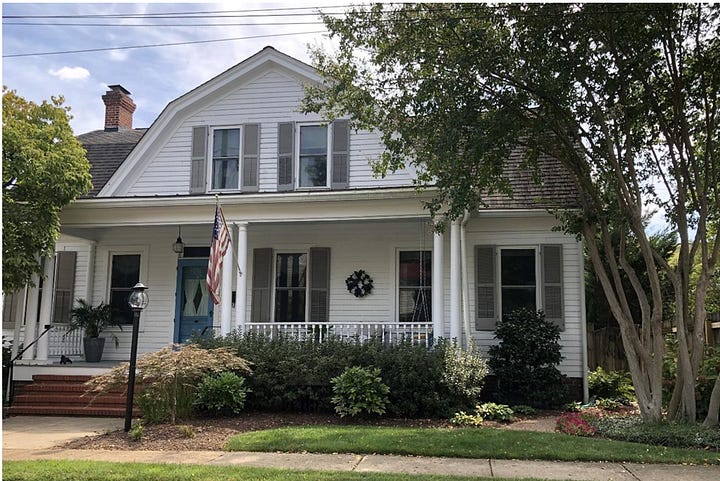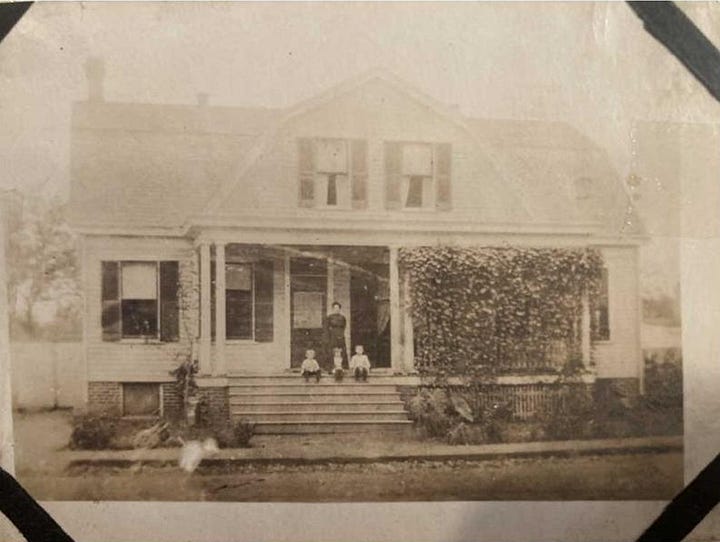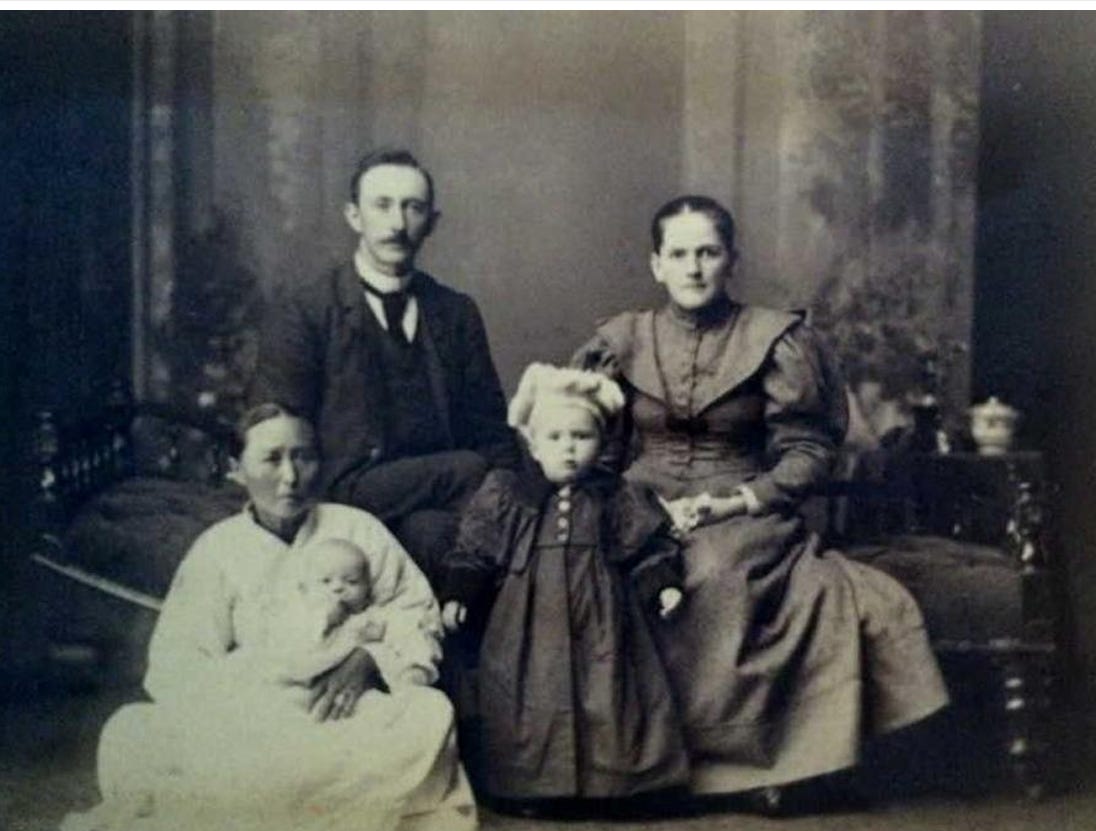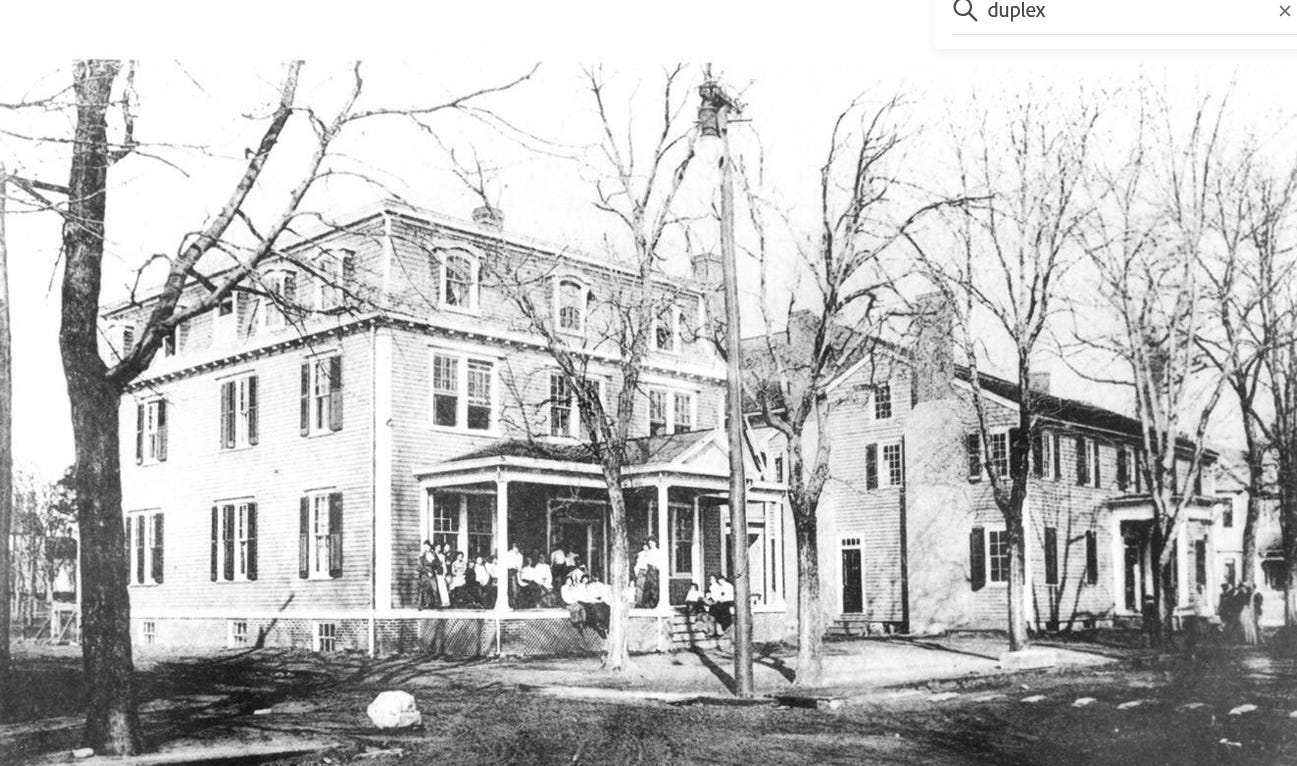History Thursday: 504 Fauquier Street
This home was built by the Presbyterian Church for a missionary widow and her children.
By Adele Uphaus
MANAGING EDITOR AND CORRESPONDENT
Email Adele


Around the turn of the 19th century, the Fredericksburg Presbyterian Church began a campaign to provide housing and education to the families of missionaries.
A.P. Saunders, the pastor of church, had the idea to create a home and school for “fallen soldiers of the Church militant,” as he wrote in a 1904 editorial in the Presbyterian Standard.
504 Fauquier Street is one of several homes in the area of Winchester and Fauquier that were occupied by missionary widows and their children. The house was actually built and gifted outright in 1909 to Mary Leyburn Junkin, its first owner, according to research conducted by Janet Waltonen for the Historic Fredericksburg Foundation’s marker program.
In 1892, Mary Junkin and her husband William, who’d been married for just five months, were two of “Seven Pioneers” who were sent by the Southern Presbyterian Church to serve as missionaries in South Korea. They lived there for 15 years and established schools and hospitals along with practicing their missionary work.
Mary Junkin studied the Korean language and taught Sunday School to between 12 and 17 young girls. She wrote of her concern over the fact that the girls weren’t being taught to read as the boys were.
“It was a great pleasure and relief to me when Miss Straeffer started her school for these little girls, for of course knowing them as I did I had become very much interested in them, and they had so often said to me, ‘Why can’t you teach us to read as the boys are being taught?’” Mary Junkin wrote in 1903, as included in Reports of the Southern Presbyterian Mission in Korea.

According to Waltonen’s research, which included correspondence with a descendant of William and Mary Junkin, a museum and a monument are being constructed to the couple in Korea.
While overseas, the Junkins had eight children. Three of them died in Korea and in 1908, William Junkin died of pneumonia. Mary was pregnant when she returned to the United States with her surviving children.
According to Waltonen, the Presbyterian Assembly’s Home and School in Fredericksburg included a dormitory on Prince Edward and Lewis Streets and the former Chew House next door, where classes were held. The whole was chartered as “Fredericksburg College” and included a primary department, a one-year preparatory program, and a four-year collegiate department.

In 1895, the College included 18 faculty and 195 students, including 40 orphans and children of missionaries. In the early 1900s, the Presbyterian Church began bringing widows such as Mary Junkin to Fredericksburg and paying for their children to attend the College. 1213 and 1215 Winchester Street are two other homes that were built missionary widows and children.
However, according to Waltonen, it was “an unprecedented move” to gift a house to one of these widows outright, especially since the College was in financial difficulty and closed in 1914. That year, Mary and her children moved to Lexington, and she sold 504 Fauquier in 1919 to John and Alma Gouldman.
The Gouldmans had seven grown children. “So many Gouldmans lived on Winchester near Hawke and in the 600 block of Fauquier that the neighborhood surrounding 504 Fauquier today is called ‘Gouldman’s Park,’” Waltonen wrote.
Among their children was Alma Keel, who taught in Fredericksburg City schools for 27 years, into the 1940s; John Gouldman Jr., who was a 35-year member of City Council; and Carr Gouldman, a chemist with the U.S. Department of Agriculture.
Alma Gouldman’s will stipulated that a room in 504 Fauquier Street be reserved for Carr “at all times.” The reason for this stipulation is “an intriguing mystery,” Waltonen wrote.
When Carr died in 1970, 504 Fauquier was sold out of the Gouldman family.
Support the Advance with an Annual Subscription or Make a One-time Donation
The Advance has developed a reputation for fearless journalism. Our team delivers well-researched local stories, detailed analysis of the events that are shaping our region, and a forum for robust, informed discussion about current issues.
We need your help to do this work, and there are two ways you can support this work.
Sign up for annual, renewable subscription.
Make a one-time donation of any amount.
Local Obituaries
To view local obituaries or to send a note to family and loved ones, please visit the link that follows.
This article is published under Creative Commons license CC BY-NC-ND. It can be distributed for noncommercial purposes and must include the following: “Published with permission by FXBG Advance.”












